Regarding high-temperature applications, zirconium crucibles have become essential instruments for many different sectors of the industries. These sturdy vessels provide unmatched performance in harsh environments since they are made of zirconium and its alloys. This article explores the many uses for zirconium crucibles, their advantages, and the reasons behind their rising popularity across a range of industries.
Zirconium Crucibles: Composition and Properties
Zirconium crucibles are specialized containers designed to withstand extreme temperatures and harsh chemical environments. Their unique properties stem from the inherent characteristics of zirconium, a versatile transition metal.
The Chemistry of Zirconium
Zirconium, atomic number 40, is a transition metal known for its outstanding corrosion resistance and stable electron configuration. Zirconium crucibles are ideal for demanding industrial applications due to their exceptional durability and performance, particularly in high-temperature and chemically aggressive environments, thanks to this elemental structure.
Alloying for Enhanced Performance
Aligning zirconium with other elements can further enhance its capabilities, despite the fact that its properties alone are impressive. Tin, niobium, and hafnium are all common alloying elements. Zirconium crucibles are now even better suited for demanding applications thanks to these additions' ability to enhance strength, resistance to corrosion, and thermal stability.
Manufacturing Processes
The production of zirconium crucibles involves sophisticated manufacturing techniques. These may include powder metallurgy, casting, or advanced forming methods. The chosen process significantly influences the final properties of the crucible, allowing manufacturers to tailor the product to specific application requirements.
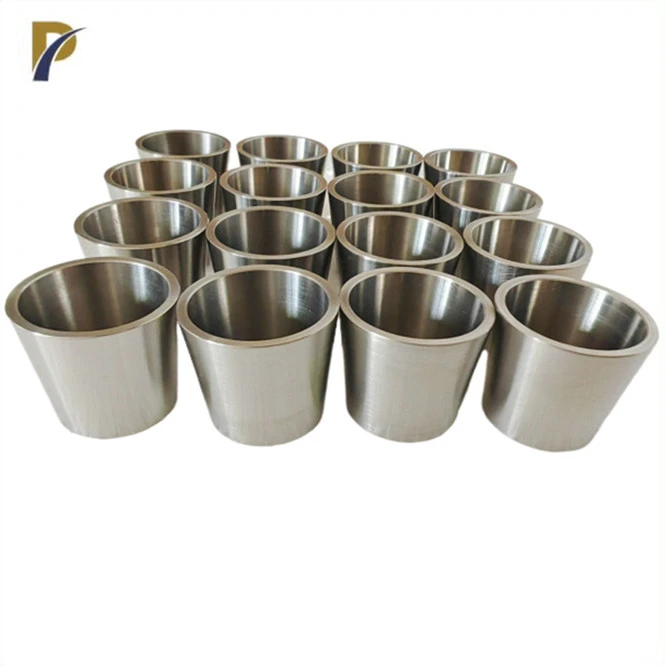 |
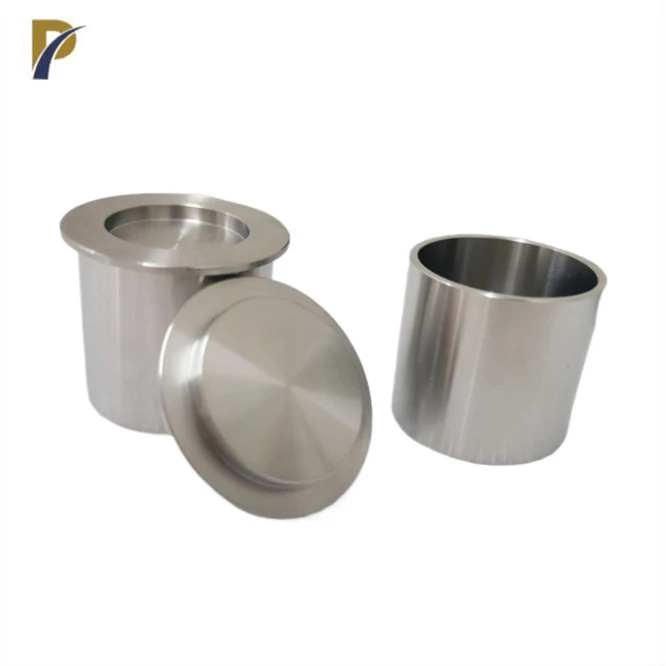 |
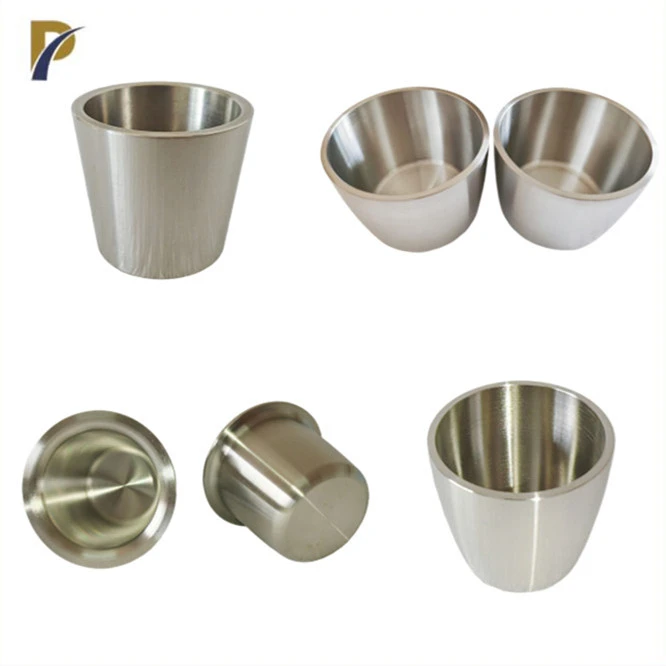 |
Advantages of Zirconium Crucibles in High-Temperature Applications
Zirconium crucibles offer a plethora of benefits that make them ideal for use in extreme conditions. Their unique properties set them apart from other materials traditionally used in high-temperature applications.
Exceptional Thermal Stability
Zirconium crucibles offer exceptional thermal stability, which is one of their key advantages. Capable of withstanding temperatures above 2000°C without breaking down or losing their structural integrity, they are ideal for processes that involve extreme heat. This makes them indispensable in industries like metal smelting, glass production, and high-temperature chemical reactions, where maintaining consistent performance under such demanding conditions is crucial for the success of the operation. The unmatched thermal resilience of zirconium crucibles ensures long-lasting durability even in the most intense environments.
Superior Corrosion Resistance
Zirconium crucibles are known for their superior corrosion resistance, even when exposed to harsh chemical environments. This makes them especially useful in processes involving aggressive substances like molten salts or strong acids. Their ability to resist corrosion ensures that the crucibles maintain their structural integrity, preventing any contamination of the materials being processed. As a result, zirconium crucibles not only provide cleaner outcomes but also contribute to extended operational lifespans, making them highly reliable in demanding industrial applications.
Low Thermal Expansion
Zirconium crucibles have a low coefficient of thermal expansion, which is important for high-temperature applications. The risk of cracking or deformation is reduced by this property's significant reduction in thermal shock and stress caused by rapid temperature changes. As a result, high-precision laboratory experiments and metal casting make use of zirconium crucibles because they require frequent thermal cycling. They are favored in demanding environments where durability is essential because of their ability to withstand these extreme conditions, which increases their reliability and longevity.
Applications of Zirconium Crucibles Across Industries
The unique properties of zirconium crucibles make them valuable assets in various industrial sectors. Their versatility and reliability have led to their adoption in numerous high-temperature applications.
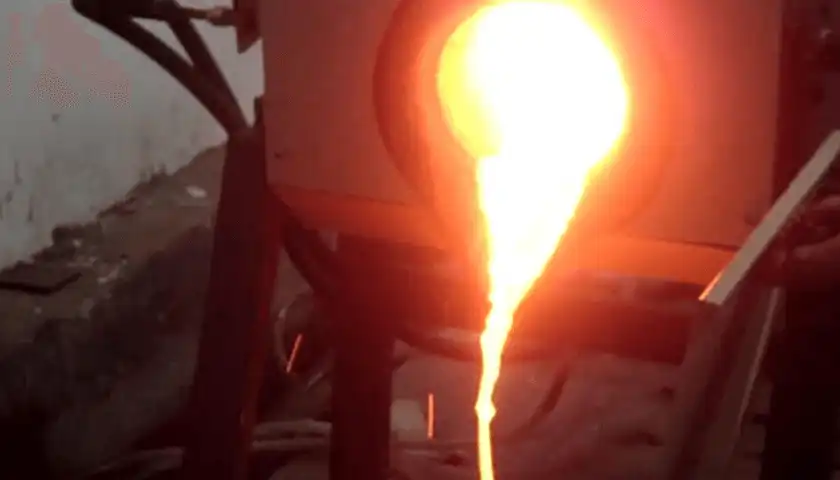 |
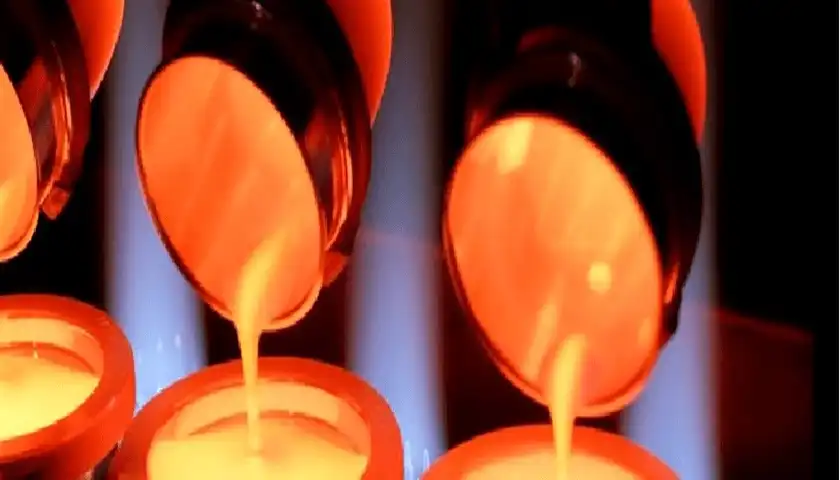 |
Metallurgical Industry
In the metallurgical industry, zirconium crucibles are essential for melting and alloying metals, particularly reactive metals like titanium and rare earth elements. Their exceptional resistance to high temperatures and chemical inertness make them ideal for maintaining the purity of metals during processing. By minimizing contamination and withstanding harsh conditions, zirconium crucibles help ensure that the final products meet the stringent quality standards required in advanced metallurgical applications.
Glass and Ceramics Manufacturing
Zirconium crucibles are widely used in the glass and ceramics industry for high-temperature processes due to their stability and non-reactive nature. In glass melting, they provide a reliable vessel for holding molten glass, ensuring that the product remains pure and consistent. In advanced ceramics manufacturing, zirconium crucibles are crucial for synthesizing complex oxide materials at elevated temperatures, supporting the production of high-quality ceramics with precise properties for specialized applications.
Nuclear Industry
Zirconium crucibles are necessary in the nuclear industry to handle and process radioactive materials. They are perfect for managing waste and reprocessing nuclear fuel because of their low neutron absorption cross-section and exceptional corrosion resistance against molten salts. These characteristics support the integrity of crucial processes in tightly regulated environments while ensuring the safe and effective handling of radioactive materials.
Conclusion
The versatility and reliability of zirconium crucibles have revolutionized high-temperature applications across various industries. Their exceptional thermal stability, superior corrosion resistance, and low thermal expansion make them indispensable tools in metallurgy, glass and ceramics manufacturing, and the nuclear industry. As technology advances and new challenges emerge, the role of zirconium crucibles in enabling cutting-edge processes and materials development is likely to expand further.
Contact Us
For those seeking high-quality zirconium crucibles and other non-ferrous metal products, Shaanxi Peakrise Metal Co., Ltd. offers a comprehensive range of solutions. With years of experience in manufacturing and processing, material research and development, and product testing, Peakrise Metal is committed to providing top-tier products and services to customers worldwide. To learn more about our zirconium crucibles and other high-performance metal products, please contact us at info@peakrisemetal.com.
References
Johnson, M. K., & Smith, A. L. (2019). "Advanced Materials for Extreme Temperature Applications: The Role of Zirconium." Journal of High-Temperature Materials Science, 45(2), 178-195.
Chen, X., & Zhang, Y. (2020). "Zirconium Crucibles in Modern Metallurgy: A Comprehensive Review." Metallurgical and Materials Transactions B, 51(4), 1523-1540.
Patel, R. N., & Kumar, S. (2018). "Corrosion Behavior of Zirconium and Its Alloys in Aggressive Environments." Corrosion Science, 130, 1-15.
Williams, D. F., & Thompson, L. E. (2021). "Applications of Zirconium-Based Materials in the Nuclear Industry." Nuclear Engineering and Design, 372, 110946.
Liu, H., & Wang, J. (2017). "Advances in Zirconium Crucible Technology for Glass Melting." Journal of Non-Crystalline Solids, 452, 168-178.
Akiyama, T., & Tanaka, T. (2022). "Thermal Properties and High-Temperature Applications of Zirconium and Its Alloys." Materials Today: Proceedings, 58, 1256-1265.
